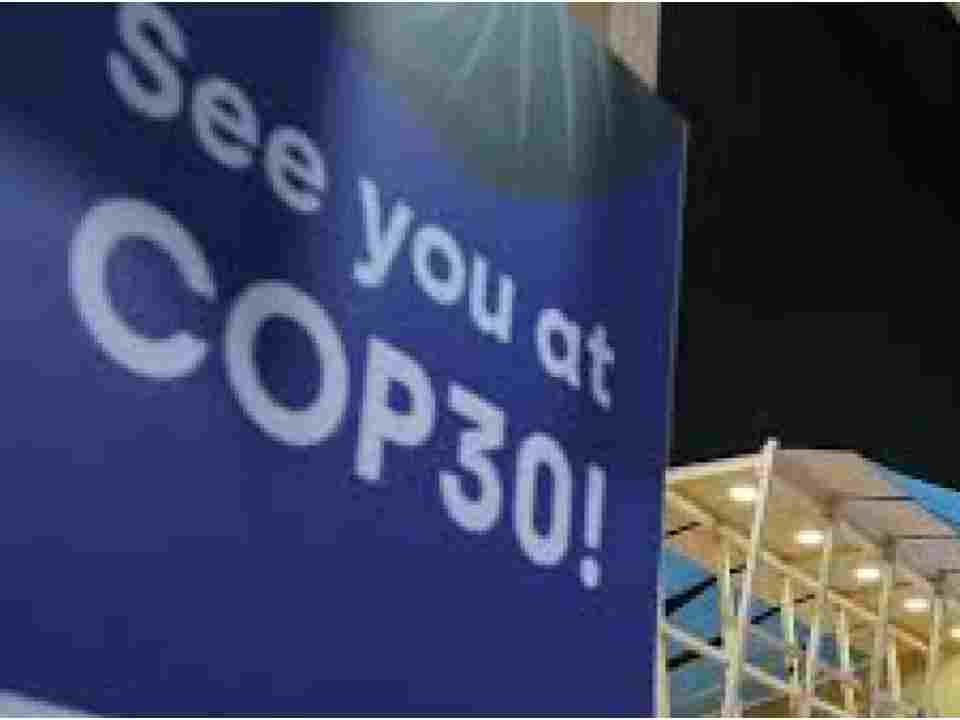Description
The 30th Conference of the Parties (COP 30) to the United Nations Framework Convention on Climate Change (UNFCCC) is set to take place in November 2025 in Belem, Brazil. This session comes at a crucial moment as the world grapples with intensifying climate risks and the urgent need for stronger collective action to curb global warming.
Background Of UNFCCC
The UNFCCC, established in 1992, provides the framework for international cooperation on climate change. Initially, it placed the primary responsibility on industrialized nations referred to as Annex I countries because of their historic emissions. This principle, known as “common but differentiated responsibilities” (CBDR), acknowledged that developed nations had contributed the most to climate change.
Over time, however, the approach has shifted. Climate action has become more inclusive, requiring all countries, including large developing economies such as China and India, to pursue low-carbon growth and adaptation strategies.
Paris Agreement And Current Gaps
Adopted in 2015, the Paris Agreement seeks to keep the global average temperature rise well below 2°C above pre-industrial levels, with an aspirational target of 1.5°C.
Yet, progress has been limited. The UNEP Emissions Gap Report 2024 warns that current national pledges may still result in 2.6°C to 2.8°C of warming, and without additional policies, temperatures could rise by 3.1°C, far exceeding safe thresholds.
Economic Risks Of Climate Change
The economic fallout of unchecked climate change is particularly severe for developing regions. The Asian Development Bank (ADB) projects that by 2070, the GDP of Asia and the Pacific could contract by 17% if high emissions persist. In India’s case, losses may approach 25% of GDP, highlighting the economic necessity of swift and effective climate mitigation.
Global Emission Trends
Six countries and blocs dominate global emissions, accounting for 74% of total CO? output:
United States
European Union
China
Russia
Japan
India
While many developed economies have reduced their emissions since the mid-1990s, emissions have grown significantly in China, Russia, and India. Per capita comparisons reveal striking inequalities:
US: 14.3 tonnes per person
Russia: 12.5 tonnes per person
EU: 5.4 tonnes per person
China: 8.4 tonnes per person
India: 2.1 tonnes per person (among the lowest)
The US And Its Climate Policy Shifts
The United States has had an inconsistent role in global climate policy. In the 1990s, it resisted binding targets. Under President Barack Obama, it helped shape the Paris Agreement. However, during the Trump administration, the US withdrew from the accord, weakening its emission reduction goals from 40% cuts to just 3% by 2030. This reversal is estimated to add billions of tonnes of CO? to the atmosphere.
The Biden administration rejoined the Paris Agreement and introduced measures like the Inflation Reduction Act, aimed at accelerating the US transition to clean energy. Still, the credibility of long-term US commitments remains uncertain.
COP 30 Matters
COP 30 is expected to play a defining role in shaping the next phase of climate action. With developed nations showing signs of backtracking on their commitments, there is growing pressure for countries like Brazil and India which have low per capita emissions to lead a coalition of developing states.
By reasserting the principle of common but differentiated responsibilities, these countries can demand greater accountability from industrialized nations while showcasing their own contributions to low-carbon development.
The outcome of COP 30 will be decisive in determining whether the world can narrow the emissions gap and stay on track to meet the Paris targets.
Welcome to Notopedia.com, your free learning platform that caters to the diverse needs of students and aspirants across a spectrum of entrance exams and educational endeavors. Whether you're preparing for highly anticipated exams like CAT, NEET, JEE Main, or bank job vacancies, our platform offers a wealth of resources to guide you towards success. Stay up-to-date with the latest exam dates, announcements, and results for various government recruitment exams, including SSC CGL, CHSL, NDA, and UPSC. Explore comprehensive study materials, sample papers, and exam patterns to hone your skills and boost your confidence. From important dates like CBSE Class 10 and 12 date sheets to exam-specific information like JEE Main application form date, we cover it all. Notopedia.com is your go-to source for everything from admissions and admit cards to scholarships and college information. Whether you're aiming for a career in defense, government, banking, or higher education, our free learning platform equips you with the knowledge and resources you need to excel. Join us in your educational journey and unlock a world of opportunities, guidance, and comprehensive support.
For more Updates and Information - Visit Notopedia's Bulletin Board
For Latest Sarkari Jobs - Visit Notopedia's Sarkari Jobs Section
For access to more than 20,000 Colleges - Visit Notopedia's College Section
For School Studies and Exams Preparation across 14 Boards - Visit Notopedia's School Section
For Comprehensive Preparation of Sarkari Job Exams - Visit Notopedia's Sarkari Exams Section










